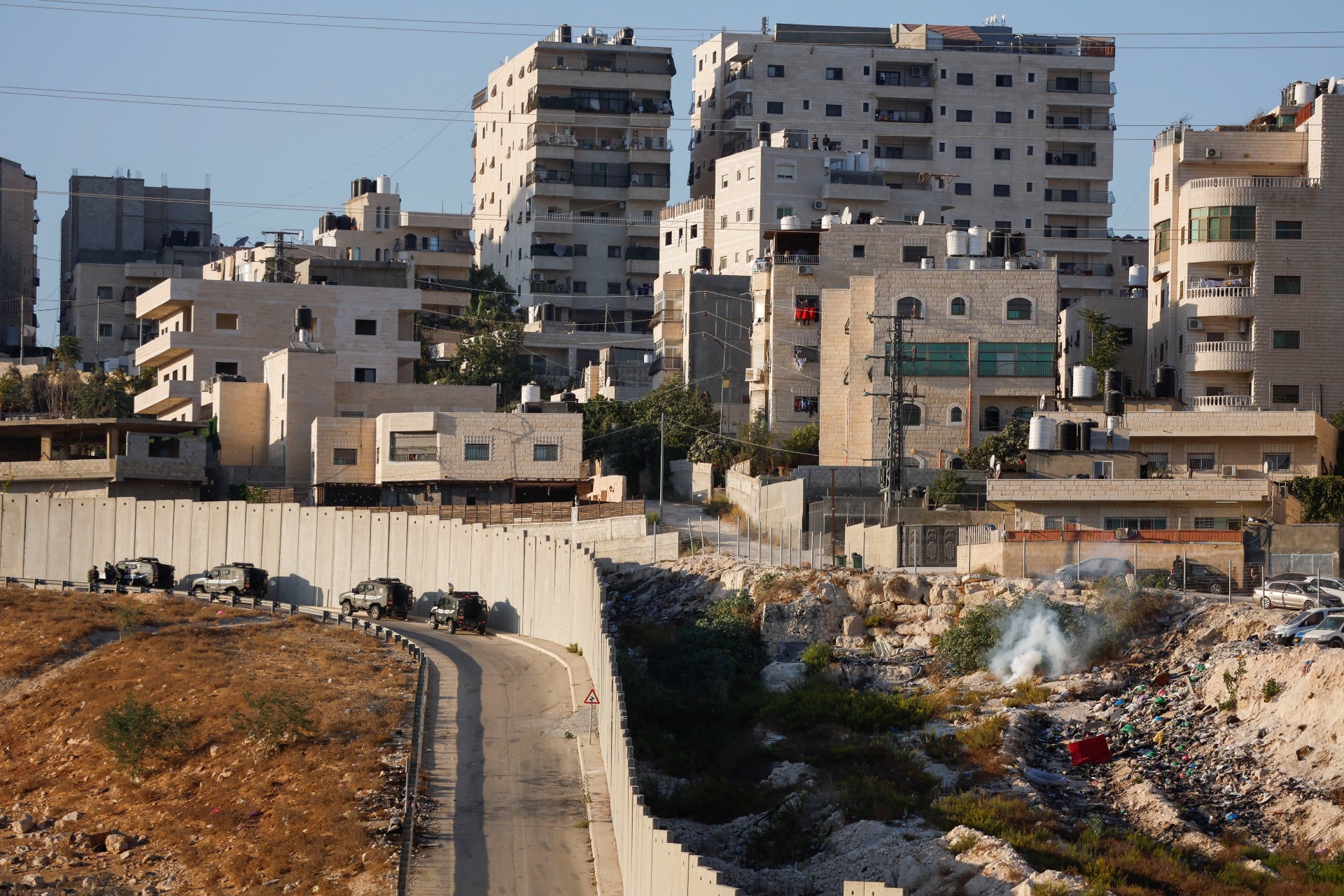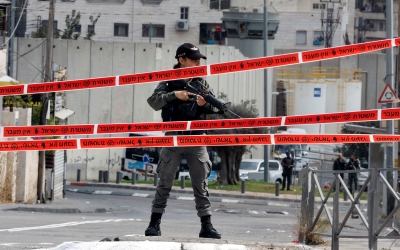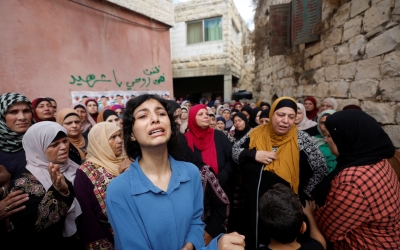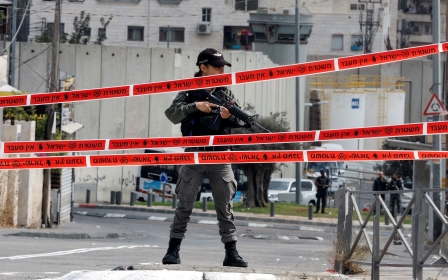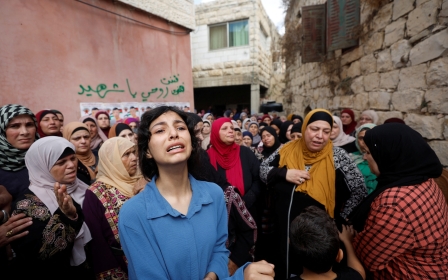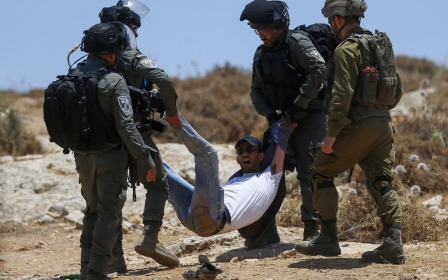Palestine: Jerusalem refugee camp under siege as Israel hunts shooter
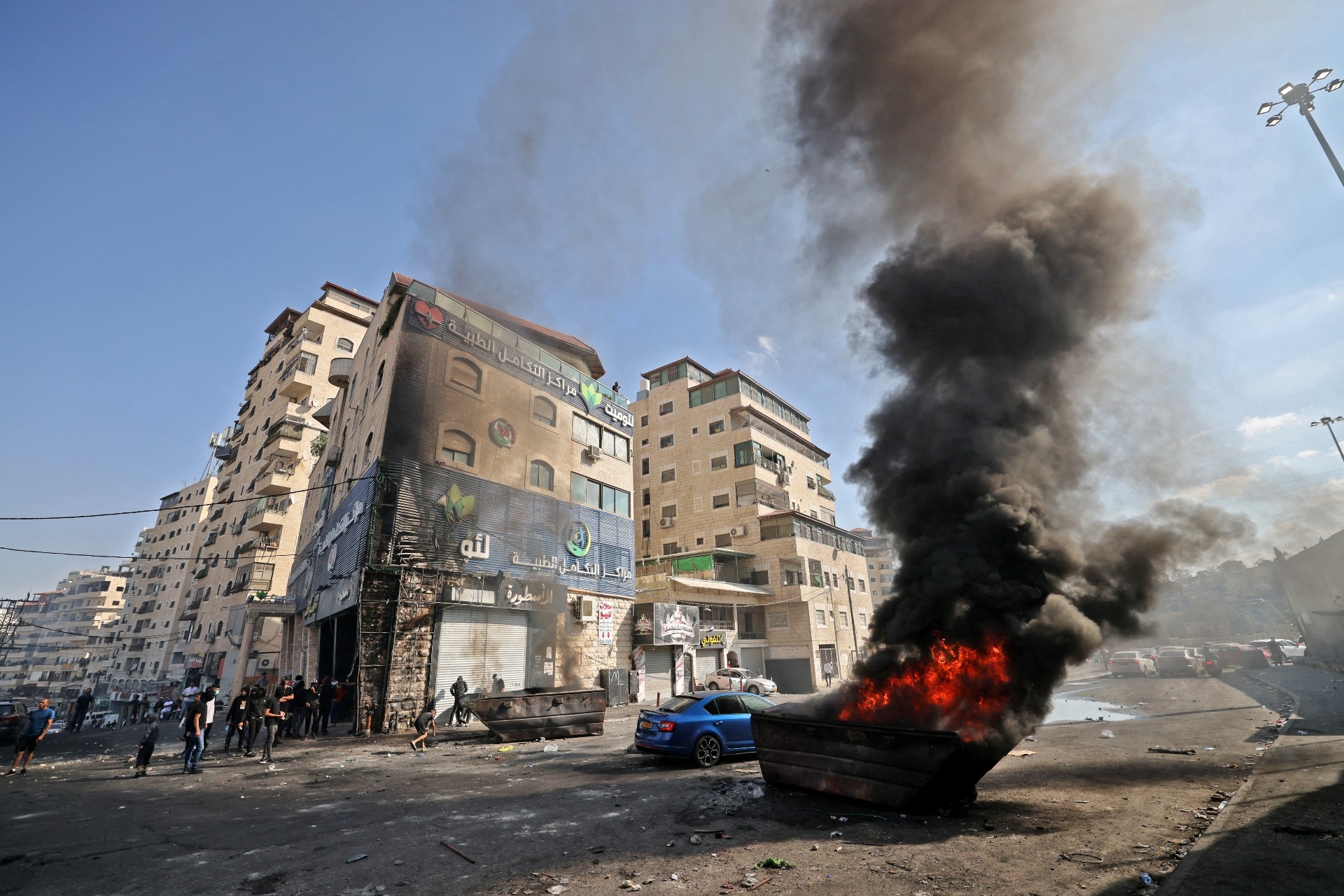
Residents of occupied East Jerusalem's Shuafat refugee camp have been trapped in the neighbourhood for three days, with some unable to leave to receive critical health treatments and many basic supplies running low, as Israeli forces enforce a strict blockade.
Israeli troops locked down the camp, located just two kilometres from the Old City, after an Israeli soldier was killed on Saturday by a man who approached a checkpoint leading to the camp and opened fire.
Israeli police identified the suspect, who is still at large, as Udi Tamimi, a 22-year-old Palestinian resident of Shuafat.
Describing the situation within Shuafat as "tragic" ,Thaer al-Fasfos, an activist and member of the camp's popular committee, said: "Many patients need to go to hospitals in Jerusalem but have been unable to do so.
"There are a lot of cases who need dialysis, as well as cancer patients who are unable to get access to treatment or chemotherapy in Hadassa and Ein Karam."
New MEE newsletter: Jerusalem Dispatch
Sign up to get the latest insights and analysis on Israel-Palestine, alongside Turkey Unpacked and other MEE newsletters
Education within the camp, which is home to around 140,000 people, has been suspended and shops are now dealing with a lack of supplies.
"There’s been a shortage of products on the shelves, including flour which people need to make bread and other basic meals," Fasfos told Middle East Eye.
"This is the first time we’ve had a siege like this. This is an area inside the city of Jerusalem, this will cause a major catastrophe for us, something we don't have capacity to deal with."
'All of the checkpoints are locked and we are now in a large prison'
- Thaer al-Fasfos, activist, Shuafat refugee camp
Referring to the manhunt in an interview with the Kan public broadcaster on Sunday, Israeli Public Security Minister Omer Barlev said: “The refugee camp is completely surrounded... It may take hours, days, but we’ll catch him.”
Speaking to MEE, Shawan Jabarin, the chair of Alhaq, a Palestinian human rights group, decribed the lockdown of the camp as "collective punishment" in which Israeli authorites "feel they are immune from accountability".
"The life of a Palestinian has no sanctity to them, as well as their livelihoods and dignity. This is embedded in the [Israeli] occupation's mindset," said Jabarin.
"From a legal point of view, this collective punishment amounts to a war crime and violates the Geneva convention. It's a form of persecution that the state of Israel applies both in action and in law."
Shuafat is the only refugee camp that lies in Jerusalem's municipal boundaries, but lies on the other side of the Israeli separation wall from the majority of the city. Around 140,000 Palestinians live in the camp, 90 percent of which have Jerusalem resident IDs that are different from Israeli or Palestinian Authority citizenship.
'Large prison'
The Al-Aqsa Martyrs Brigades, an armed wing associated with the Fatah movement, claimed responsibility for Saturday's attack, but the shooter is largely thought to have acted without affiliation to any group.
Israeli media reports said Tamimi's mother, father and brother had all been detained.
Israeli forces have also closed all entrances to the town of Anata, and the suburb of al-Salam, northeast of East Jerusalem.
The Shuafat camp was reported to be swarming with Israeli soldiers on Monday as the search for the suspect continued.
"The incursions are continuing and large military forces are entering the camp, raising their weapons towards the people," said Fasfos.
"Special [Israeli] units are also on the ground, causing injuries to people, with no one able to help or assist them."
In a statement, the Palestinian Red Crescent Society said that Israeli forces had prevented ambulance crews from entering the Shuafat and Anata.
The Red Crescent said Israeli troops had blocked access to emergency services and stopped “medical staff from performing their humanitarian duty”.
"All of the checkpoints are locked and we are now in a large prison," said Fasfos.
"People had no idea that the camp would be under lockdown, there is no one even coming to dispose of the waste or clean."
A helicopter was also being used to scan the area from the air, police said.
One Shuafat resident, who declined to be named, told MEE he waited three hours at a checkpoint to be allowed to go to his weekly dialysis treatment, but was not allowed to leave. Only people who do not reside in Shuafat are allowed out, sources said.
"This [blockade] has now restricted people seeking treatment; children and social events, like weddings, and so on," said Jabarin.
"On top of this closure, Palestinians inside this prison are being persecuted, through checkpoints, firing of teargas and stun grenades, home raids and terrorising of people.
"When a settler carries out a killing, neither the settlement gets closed off like this nor does anything happen to him or her. But if a Palestinian throws one rock then the entire community gets punished."
Al-Aqsa Mosque stormed
Tensions in East Jerusalem and the occupied West Bank have escalated in recent days following a number of killings of Palestinians by Israeli forces and the beginning of the week-long Jewish Sukkot holiday.
Israeli forces shot dead two Palestinian teenagers in the West Bank city of Jenin on Saturday morning, hours after it killed two more minors, including a 14-year-old boy, near Qalqilya and Ramallah.
More than 160 Palestinians have been killed by Israeli fire this year, including 50 in the Gaza Strip and at least 110 in the West Bank and East Jerusalem.
The death toll rate in the West Bank is the highest recorded in a single year since 2015.
Dozens of Israeli settlers stormed the Al-Aqsa Mosque in occupied East Jerusalem on Monday on the second day of Sukkot.
Inside the settlers performed prayers after Israeli police cleared the compound of Muslim worshippers.
Other settlers marched through the streets of the Old City while holding rituals near the gates leading to Al-Aqsa Mosque.
Palestinians have been outraged by repeated intrusions by Israeli settlers to pray at the Al-Aqsa Mosque.
By long-standing convention, non-Muslim tourists are allowed to visit under certain conditions and the approval of the Waqf, an Islamic trust that manages the mosque's affairs, but only Muslims are allowed to pray there.
Tor Wennesland, the UN special coordinator for the Middle East Peace Process, issued a statement on Saturday saying he was "alarmed at the deteriorating security situation" and urged Israeli and Palestinian authorities to "restore calm and avoid further escalations".
Middle East Eye delivers independent and unrivalled coverage and analysis of the Middle East, North Africa and beyond. To learn more about republishing this content and the associated fees, please fill out this form. More about MEE can be found here.


